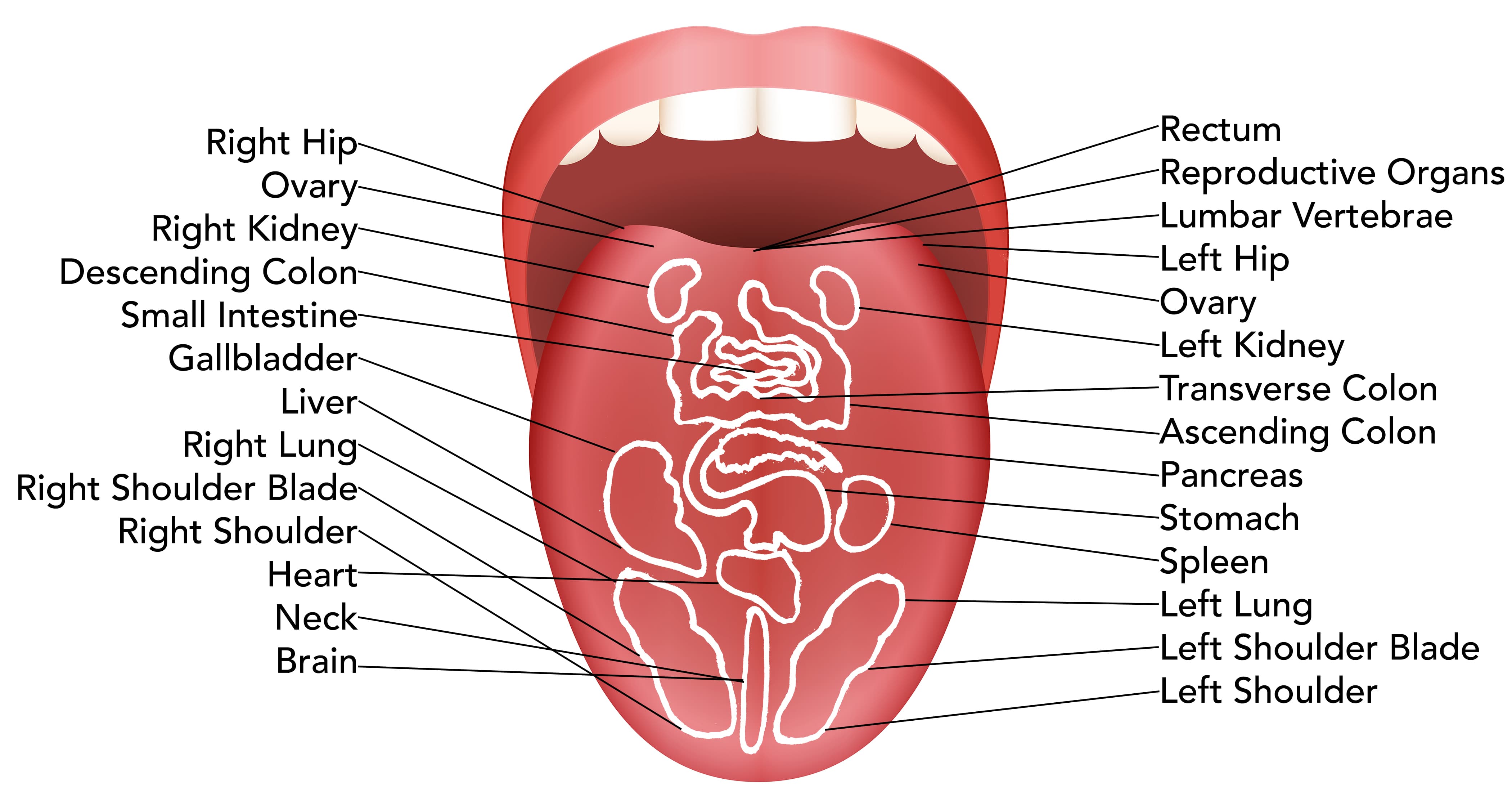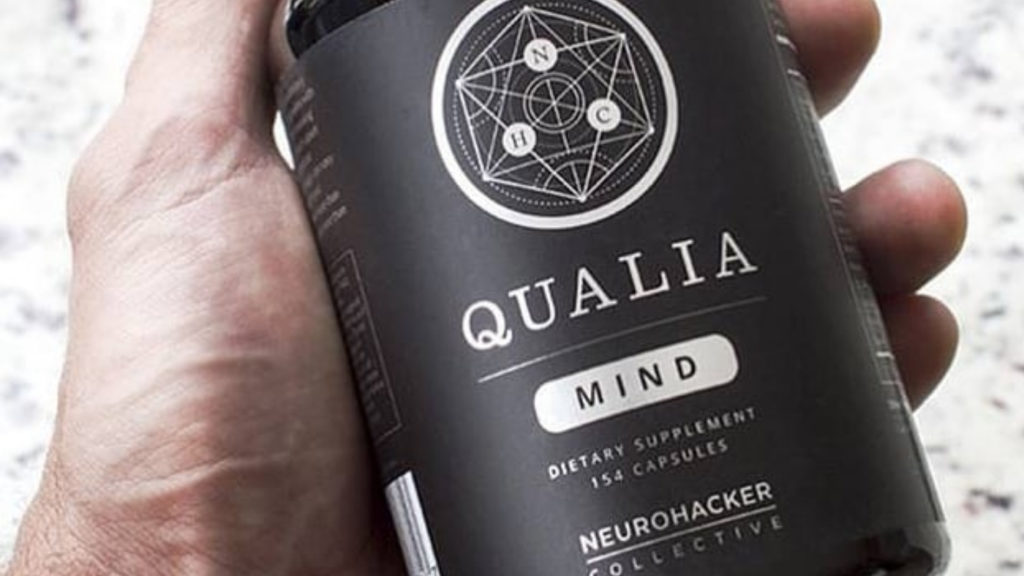August 27, 2019
The following is a guest post written by a new acquaintance of mine, a speech-language pathologist named Matt Criscuola. I first became aware of Matt when I read a fantastic article on his website entitled “Chewing: The Missing Piece” (be sure to read that article too!), and in our dialogue since, he kindly offered to fill me and my readers in on some very important elements related to—you guessed it—our tongues.
The tongue is a strange and complex muscular organ. We often don’t pay any attention to our tongue, except when tasting, interacting with a loved one, or when it accidentally gets in the way of the teeth.
But your tongue isn’t just for talking and tasting; it is an indicator of what’s going on in your body, and in this article, you'll learn how your tongue can give you clues as to your overall health.
Enjoy, and leave your questions, comments, and feedback below the post.
What Your Tongue Is Telling You
The tongue is an important digestive organ that consists of a network of 8 muscles. But unlike most muscles, the tongue functions independently from bones.
We often think of digestion as happening in the gut, but the tongue is actually an important part of the digestive system. Our tongue and salivary glands start the digestion process. But our tongue isn’t just the facilitator of digestion, it is the indicator as well.
As a matter of fact, one major tenet of acupuncture is understanding the appearance and features of the tongue and how this relates to how the body is functioning.
Wetness, color, and texture are how we evaluate the state of the tongue. A healthy tongue is wet, pink, and smooth. It is important to make sure you take care of it. The good news about the tongue is that most of the problems can be solved with proper oral hygiene and diet.
According to Ayurvedic medicine, the tongue plays a pivotal role in diagnosis, and discoloration in one particular area of the tongue can indicate trouble in the organ corresponding to that area.

Why is my tongue white, green, red…?
1. Seeing bright, raspberry red is indicative of a vitamin deficiency.
Glossitis is an infection that presents as an inflamed, smooth, red, “beefy” tongue. Glossitis is the result of nutritional deficiencies from Vitamin B12, iron, and folate.
Vitamin B12 is prevalent in meats so it is a common deficiency in vegetarians and vegans (you can read about other common deficiencies, and how to address them, in Ben's article here). Often, deficiencies in these vitamins and minerals often have other symptoms like fatigue, cognitive impairments, and weakness.
2. Black or brown hairs (fuzzy tongue) = poor oral hygiene.
Fuzzy tongue is the result of smoking and poor oral hygiene. The fuzz is bacteria build up on the papillae. The papillae are the mass of bumps and taste buds that rest on the surface of the tongue. These usually get worn down by the wear and tear of chewing and drinking, but they can become overgrown, which turns them to magnets for bacteria. When there is too much build-up, it can decrease both taste sensation and saliva production.
With proper maintenance, you should never see this. Although it looks horrific, it is not something to be concerned about. If you do see it, pay attention to the oral hygiene tips you'll find later in this article.
3. Red legions = red flags.
Red legions are a red flag. You should see a doctor immediately because they can indicate tongue cancer. Be careful not to confuse this with canker or even cold sores, as they usually disappear after two weeks. When in doubt, see a doctor. Age is not a factor when it comes to tongue cancer.
4. White or gray patches indicate “leukoplakia.”
Thick, raised but painless patches can often form on the mucosal tissue inside your mouth when your tongue is white or gray. It’s caused by irritants from smoking, long-term alcohol use, and trauma from dentures or rough, uneven teeth, and this is known as leukoplakia. If it's from constantly rubbing your tongue on the teeth, it should go away within two weeks. If not, you should see a doctor.
5. White or yellow indicates impaired digestion.
You're no doubt familiar of the gut-brain connection (you can read Ben's comprehensive article on it here). Healthy gut bacteria in the flora has a pervasive effect on our overall well-being, specifically by reducing inflammation. This is where a white tongue can give you clues. A white-coated tongue is one that is struggling with digestion. Chronic white residue on the tongue is often indicative of candida, a yeast infection. Other symptoms of candida include tiredness and fatigue, sinus infections and joint pain. Candida or “thrush” appears as a white coat on the tongue.
The white coating results in dead matter accumulating in the papillae. But a white, cheesy coating is different from white or gray patches of leukoplakia. You may notice this problem when you drift from eating nutritious whole foods, your tongue tastes and feels different, especially in the morning. The reason you wake up with a bad taste in your mouth is because of the bacteria build up that is jammed between the papillae.
When the digestive system is taxed—usually from converting refined carbohydrates like sugar-rich foods or pasta—the bacteria build up on the tongue. You can often tell how healthy your diet is by how clean your tongue feels when you wake up.
The yellow color is usually the result of poor oral hygiene, alcohol, dehydration, and coffee or black tea consumption. Yellow tongues should be something you are able to brush away, but if they persist for more than two weeks it may be time to see a doctor, especially if it is accompanied by a sore throat and fever.
6. A rough, dry tongue indicates dehydration.
A rough, dry tongue could be a sign of dehydration. Dehydration means there isn’t enough saliva to lubricate the tongue and soft palate. Getting enough fluids and electrolytes should return a dry tongue to a happy healthy smooth pink state. In this podcast, Ben interviews Tim Noakes about exactly how much fluid to consume.
Dry mouth, or Xerostomia, affects taste. Saliva assists in dissolving and transporting solutes to the taste receptor pores. So when the tongue is dehydrated, it produces less saliva which disrupts the flow to the taste receptors.
How To Maintain a Healthy Tongue
Now that you know a few clues to look for on your tongue, let's move on to some healthy tongue maintenance tips. You can begin by making sure you are chewing your food properly! Here's exactly how. Since digestion starts in the mouth, make sure you are helping the process by breaking down your food adequately.
But there are steps you can take that go beyond chewing.
For example, a diet rich in fermented foods and spices helps to restore balance to the gut bacteria, which improves digestion and prevents candida fungus from entering the bloodstream.
Because of this, healthy tongue foods include:
Raw Probiotic Foods
Sauerkraut, Kimchi and lacto fermented pickles (the cloudy sour kind not the green vinegar ones) are outstanding sources of probiotics. Ben has a great article on that here. Apple cider vinegar has also been proven to clear up the fungal infection as well. Thorne FloraSport 20B is one very good multistrain probiotic that balances the gut, as is the SEED probiotic Ben discusses in this podcast. It’s essential to maintain the right formula of probiotics so that your gut remains in homeostasis, especially if you are traveling and cannot be consistent with your diet.
Spices
Ginger, cinnamon, turmeric, oregano, and clove are all known for having strong anti-fungal properties. But they are also essential spices that improve the digestive system. For example, Kion oregano oil is the perfect travel companion because it allows you to unlock the potent antifungal power of oregano on the go.
You may notice that all these foods and spices have something in common, taste and intensity. There is a reason why intense or bitter flavors are great for digestion: they stimulate the tongue which enhances the production of salivary amylase to aid in the process of breaking down food and fighting bacteria.
By looking at the tongue we can see what we need to do to regulate our system. Pay attention to the wetness, color, and texture. By chewing our food correctly, keeping our diet in check, and by using the right spices and supplements, we can keep our tongue in its healthy, wet, pink form.
Getting To The Root Of Bad Breath
No discussion of oral health would be complete without addressing bad breath, also known as halitosis.
One major cause of bad breath is due to the accumulation of bacteria on the tongue, but mostly on the parts you can’t see.
The base of the tongue is the thick, muscular part that is attached to the throat, jaw, and neck. The vallecula is the space between the root of the tongue and the folds in the throat. This is where solids and liquids pass through as they are swallowed. This is also a hotbed for bacteria to build up. You can’t reach this spot with a toothbrush—instead, the only way is to gargle. But there is a delicate balance here. If you gargle with your head too far back, the liquid will stimulate a swallow, or simply make you gag. When balanced correctly, you will hit the parts of your tongue that hold the greatest pockets of bacteria.
You will notice that when you stray from your healthy diet, your tongue tells you in the morning. It builds up a little more gunk than usual. But brushing the tongue clears up the white residue that builds up.
For regular tongue maintenance and avoidance of bad breath, gently brush your tongue regularly with a tongue brush. Key word is gently. You don’t need to be rough with it, but simply brush from above the base down to the tip. You’ll know you went too far up if you gag, though a slight gag is acceptable and should be expected. It shows you have a healthy gag reflex and your cranial nerves are firing at the correct stimulus.
Summary
To sum it all up:
- Brush your tongue gently and daily with a tongue brush
- Ensure your tongue is wet, pink, and smooth
- Make sure you are getting enough fluids and electrolytes (especially if your tongue is white)
- Chew your food properly
- Eat plenty of raw probiotics
- Take probiotic supplements regularly, like SEED Probiotic formula (use discount code BEN15)
- Add some of the spices mentioned above (ginger, cinnamon, turmeric, oregano, and clove) to improve digestion
Have your own questions, comments or feedback about the tongue? Leave them below, and Matt or I will reply!














Nice article, it is similar to what I heard from a Chinese doctor. He told me the tongue can tell lots of info about my body. So recent years, when I am sick, I watch the tongue for a checking.
Love all your content Ben but one issue I did not see addressed is cracks on the tongue, especially on the edges can you please give some insight?
If my information is correct, cracks on the tongue are referred to as a Geographical tongue. It’s usually benign, but if you have pain or swelling I would definitely see a Doctor.
my tongue will form a white coating and actually start to peel if i eat too much sugar/ preservatives/ dairy. I can always tell my gut health by just looking at my tongue
You didn’t mention scalloped tongue or a tongue with teeth marks on the edges. Any suggestions for this? Thanks!
My tongue is basically white every morning and brushing it is a giant part of my oral hygiene routine. I do not see from the article (nor has my Dr. or Dentist ever provided me with insight) as to what I should do to alleviate this situation – which I have had for as long as I can remember.
Thank you for the article and if you could point me in the right direction concerning my tongue issue, that would be wonderful.
It would seem this is related to something you eat. Make sure your gut biome is in check and try eliminating the major allergen foods and see what happens. It seems benign, but it could be diet related.
Hey great article… but what do ulcers say about your health? Me and the family have been getting more and more over the past few years. Seems to be diet related but our doc just says it’s stress and dismisses us. Any clues?!
Not too sure about ulcers but if it’s stress check your gut biome and your sleep patterns. These two domains get rocked by stress.
Since I haven’t been sick or even a cold in 30 years, I’m here to say that what you just posted about our tongues, is what I’ve been doing. Plus, I know the right supplements that my body needs to function, & to be able to see a Doctor that seems to be amazed after my yearly physical. I’m 71 years old & I’m not on any prescription drugs.
Awesome! 💪